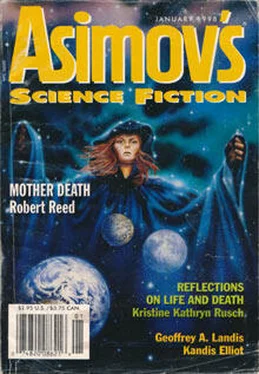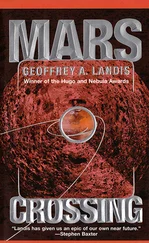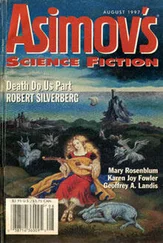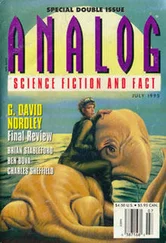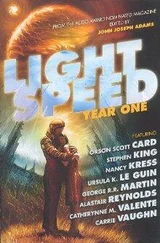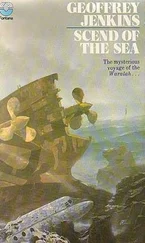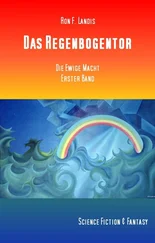Have I been transported into some other universe? Could the black hole’s gravity sever the wormhole, cutting it loose from our universe entirely, and connect it into this strange new one?
If so, it has doomed me. The wormhole behind me, my only exit from this strange universe, is already destroyed. Not that escaping through it could have done me any good—it would only have brought me back to the place I escaped, to be crushed by the singularity of the black hole.
I could just turn my brain off, and I will have lost nothing, in a sense. They will bring you out of your suspended state, tell you that the edition of you that dropped into the black hole failed to upload, and they lost contact after it passed the event horizon. The experiment failed, but you had never been in danger.
But, however much you think we are the same, I am not you. I am a unique individual. When they revive you, without your expected new memories, I will still be gone.
I want to survive. I want to return.
A universe of tubes of light! Brilliant bars of an infinite cage. The bright lines in the sky have slight variations in color, from pale red to plasma-arc blue. They must be similar to the red cylinder near me, I figure, but light-years away. How could a universe have lines of light instead of stars?
I am amazingly well equipped to investigate that question, with senses that range from radio through X-ray, and I have nothing else to do for the next thousand years or so. So I take a spectrum of the light from the glowing red cylinder.
I have no expectation that the spectrum will reveal anything I can interpret, but oddly, it looks normal. Impossibly, it looks like the spectrum of a star.
The computer can even identify, from its data of millions of spectra, precisely which star. The light from the cylinder has the spectral signature of Wolf-562.
Coincidence? It cannot possibly be coincidence, out of billions of possible spectra, that this glowing sword in the sky has exactly the spectrum of the star that should have been there. There can be no other conclusion but that the cylinder is Wolf-562.
I take a few more spectra, this time picking at random three of the lines of light in the sky, and the computer analyzes them for me. A bright one: the spectrum of 61 Virginis. A dimmer one: a match to Wolf-1061. A blue-white streak: Vega.
The lines in the sky are stars.
What does this mean?
I’m not in another universe. I am in our universe, but the universe has been transformed. Could the collision of a wormhole with a black hole destroy our entire universe, stretching suns like taffy into infinite straight lines? Impossible. Even if it had, I would still see far-away stars as dots, since the light from them has been traveling for hundreds of years.
The universe cannot have changed. Therefore, by logic, it must be me who has been transformed.
Having figured out this much, the only possible answer is obvious.
When the mathematicians describe the passage across the event horizon of a black hole, they say that the space and time directions switch identity. I had always thought this only a mathematical oddity, but if it were true, if I had rotated when I passed the event horizon, and was now perceiving time as a direction in space, and one of the space axes as time—this would explain everything. Stars extend from billions of years into the past to long into the future; perceiving time as space, I see lines of light. If I were to come closer and find one of the rocky planets of Wolf 562, it would look like a braid around the star, a helix of solid rock. Could I land on it? How would I interact with a world where what I perceive as time is a direction in space?
My physicist persona doesn’t like this explanation, but is at a loss to find a better one. In this strange sideways existence, I must be violating the conservation laws of physics like mad, but the persona could find no other hypothesis and must reluctantly agree: time is rotated into space.
To anybody outside, I must look like a string, a knobby long rope with one end at the wormhole and the other at my death, wherever that might be. But nobody could see me fast enough, since with no extension in time I must only be a transient event that bursts everywhere into existence and vanishes at the same instant. There is no way I can signal, no way I can communicate—
Or? Time, to me, is now a direction I can travel in as simply as using my rocket. I could find a planet, travel parallel to the direction of the surface—
But, no, all I could do would be to appear to the inhabitants briefly as a disk, a cross-section of myself, infinitely thin. There is no way I could communicate.
But I can travel in time, if I want. Is there any way I can use this?
Wait. If I have rotated from space into time, then there is one direction in space that I cannot travel. Which direction is that? The direction that used to be away from the black hole.
Interesting thoughts, but not ones which help me much. To return, I need to once again flip space and time. I could dive into a black hole. This would again rotate space and time, but it wouldn’t do me any good: once I left the black hole—if I could leave the black hole—nothing would change.
Unless there were a wormhole inside the black hole, falling inward to destruction just at the same instant I was there? But the only wormhole that has fallen into a black hole was already destroyed. Unless, could I travel forward in time? Surely some day the research team would drop a new wormhole into the black hole—
Idiot. Of course there’s a solution. Time is a spacelike dimension to me, so I can travel either direction in time now, forward or back. I need only to move back to an instant just after the wormhole passed through the event horizon, and, applying full thrust, shoot through. The very moment that my original self shoots through the wormhole to escape the singularity, I can pass through the opposite direction, and rotate myself back into the real universe.
The station at Virgo black hole is forty light years away, and I don’t dare use the original wormhole to reach it. My spacetime-rotated body must be an elongated snake in this version of space-time, and I do not wish to find out what a wormhole passage will do to it until I have no other choice. Still, that is no problem for me. Even with barely enough fuel to thrust for a few microseconds, I can reach an appreciable fraction of light-speed, and I can slow down my brain to make the trip appear only an instant.
To an outside observer, it takes literally no time at all.
“No,” says the psych tech, when I ask her. “There’s no law that compels you to uplink back into your original. You’re a free human being. Your original can’t force you.”
“Great,” I say. Soon I’m going to have to arrange to get a biological body built for myself. This one is superb, but it’s a disadvantage in social intercourse being only a millimeter tall.
The transition back to real space worked perfectly. Once I figured out how to navigate in time-rotated space, it had been easy enough to find the wormhole and the exact instant it had penetrated the event horizon.
“Are you going to link your experiences to public domain?” the tech asks. “I think he would like to see what you experienced. Musta been pretty incredible.”
“Maybe,” I said.
“For that matter,” the psych tech added, “I’d like to link it, too.”
“I’ll think about it.”
So I am a real human being now, independent of you, my original.
There had been cheers and celebrations when I had emerged from the wormhole, but nobody had an inkling quite how strange my trip had been until I told them. Even then, I doubt that I was quite believed until the sensor readings and computer logs of Huis Clos confirmed my story with hard data.
Читать дальше
